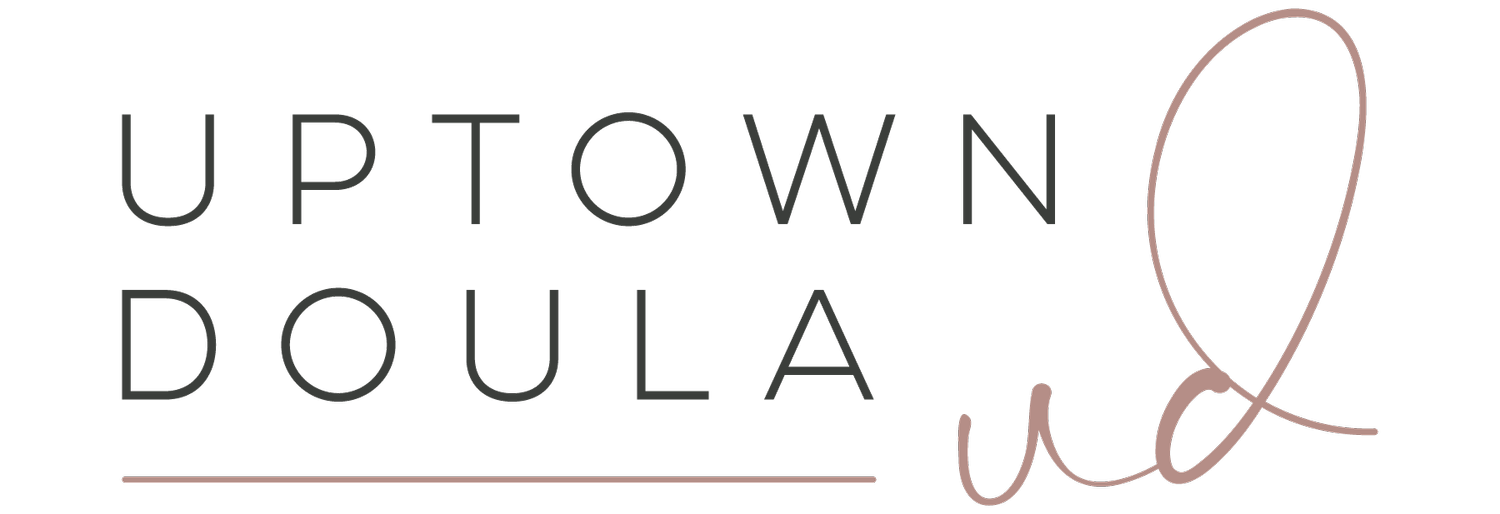When you imagine your life after having a baby, it is easy to see the diapers, snuggling, and a slew of baby items taking up space in your house. And if you have been reading up on birth recovery, you know your physical needs will need to be a priority in those first weeks home as well.
We want to share three real parts of recovering from birth in the U.S. that are becoming more and more "normal" but are still quite overwhelming and debilitating. Not because we want to scare you, but because it is never wrong to share about a potential struggle so it can benefit others from overcoming their own!
3 Normal Things in Postpartum Recovery That Can Feel Overwhelming
ONE - Anger, anxiety, and sadness will nestle into a new part of your awareness.
Many people in the U.S. are late to understand the magnitude of the "mindfulness movement" to heighten their emotional intelligence or participate more fully in their self-care rituals. Instead, it is common for feelings to be buried or ignored. Or more common, it is human nature to take any feelings of discomfort and pain and find ways to blame others as the cause.
In the postpartum period, it is common to feel intense moods, positive and negative. Early stages are referred to as baby blues, and longer lasting symptoms may be signs of P.M.A.D.s like postpartum depression, or postpartum anxiety. Your feelings seem bigger, or maybe even out of control, and it may seem like you are a stranger to yourself. The postpartum person is one that deserves an immense amount of compassion and support. The feelings, changes, and experiences are all combined and are overwhelming. The overwhelm can feel debilitating.
TWO - It is normal not to know what you want, or how to ask
Having a strong emotional ties to your baby is a developmental trait that has helped our species survive. AND it makes it very hard for some to accept help. But we also aren't designed to do parenthood in such small groups of only two-ish people!
You may not have a lot of experience with a newborn. You may not understand what is normal for them, let alone a new postpartum person. And making sure everyone has what they need and want is a lot of stress! And let's not forget about the to-do lists and doctor appointments. Many women are taught from a very young age that they are the problem solvers and home makers, so learning to ask for help is a very hard thing to suddenly start doing if you have little practice with it.
THREE - Being a new parent with an infant is very, very lonely.
Many families share with us things like they feel trapped, or they have no focus, they feel constantly tired, and their level of personal hygiene is surprising.
It is a drastic shift in time management when a newborn comes home. For very social people, having a new baby may mean their typical interactions are completely disturbed. And for those in a social circle who don’t have friends, they may find it hard to know how to help or talk about the new things going on in your life.
And for those who don’t have a wide social network that invites you out and helps you have a few shared experiences you enjoy, what seems like your normal behavior of spending time by yourself allows even less opportunity to ask for help.
Whether you are introverted or extroverted, we recommend having at least a two close friends commit to making a visit in the first weeks to spend face-to-face time with you.
Some Tools for working through these parts of postpartum healing:
Since there is no getting away from this new you, advice straight from talk therapists is to "ground" yourself. Start by taking a deep breath to start, plant your feet firmly on the ground, and take a few breaths to imagine your breath traveling into your lungs, and then swirling around your limbs and organs until it reaches the farthest parts of you. Imagine your feet sinking into the floor. Imagine being rooted to that spot for a few more deep breaths.
And the second recommendation is to name what you feel as it is happening to you. By bringing awareness through naming, you are not letting your feelings take over, but you are respecting that they are important, and you see value in acknowledging all the work your mind and body are doing.
Ask yourself these questions when you feel your emotions ramping up: "What would help me the most at this moment?" and "Are my basic needs being met?"
If you have friends over, maybe what would help you the most is the garbage taken out — or getting a long hug from your partner — or going to the bathroom! Take a minute to really look at that moment and forget about planning for what's next.
Another tool that helps to identify any needs that need attention is the acronym H.A.L.T.
H.A.L.T. stands for hunger, anger, loneliness, and tired. If you are any of those things, getting those needs met needs to happen before other more complex decisions can be made.




